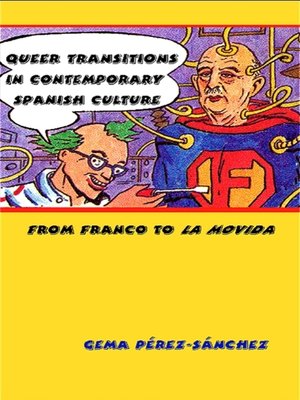Queer Transitions in Contemporary Spanish Culture
ebook ∣ From Franco to LA MOVIDA · SUNY Series in Latin American and Iberian Thought and Culture
By Gema Pérez-Sánchez

Sign up to save your library
With an OverDrive account, you can save your favorite libraries for at-a-glance information about availability. Find out more about OverDrive accounts.
Find this title in Libby, the library reading app by OverDrive.



Search for a digital library with this title
Title found at these libraries:
| Loading... |
Gema Pérez-Sánchez argues that the process of political and cultural transition from dictatorship to democracy in Spain can be read allegorically as a shift from a dictatorship that followed a self-loathing "homosexual" model to a democracy that identified as a pluralized "queer" body. Focusing on the urban cultural phenomenon of la movida, she offers a sustained analysis of high queer culture, as represented by novels, along with an examination of low queer culture, as represented by comic books and films. Pérez-Sánchez shows that urban queer culture played a defining role in the cultural and political processes that helped to move Spain from a premodern, fascist military dictatorship to a late-capitalist, parliamentary democracy.
The book highlights the contributions of women writers Ana María Moix and Cristina Peri Rossi, as well as comic book artists Ana Juan, Victoria Martos, Ana Miralles, and Asun Balzola. Its attention to women's cultural production functions as a counterpoint to its analysis of the works of such male writers as Juan Goytisolo and Eduardo Mendicutti, comic book artists Nazario, Rubén, and Luis Pérez Ortiz, and filmmaker Pedro Almodóvar.
The book highlights the contributions of women writers Ana María Moix and Cristina Peri Rossi, as well as comic book artists Ana Juan, Victoria Martos, Ana Miralles, and Asun Balzola. Its attention to women's cultural production functions as a counterpoint to its analysis of the works of such male writers as Juan Goytisolo and Eduardo Mendicutti, comic book artists Nazario, Rubén, and Luis Pérez Ortiz, and filmmaker Pedro Almodóvar.






